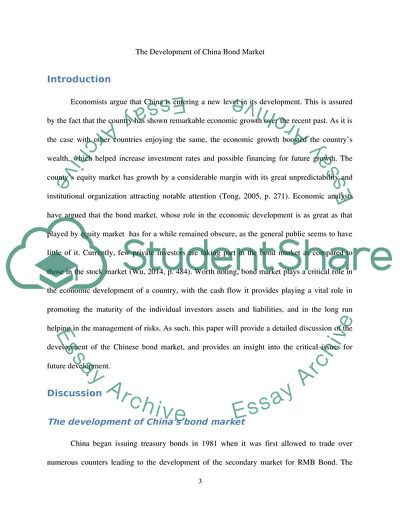Cite this document
(“The Development of Chinese Bond Market and Its Critical Issues for Essay”, n.d.)
The Development of Chinese Bond Market and Its Critical Issues for Essay. Retrieved from https://studentshare.org/finance-accounting/1692089-the-development-of-chinese-bond-market-and-its-critical-issues-for-future-development
The Development of Chinese Bond Market and Its Critical Issues for Essay. Retrieved from https://studentshare.org/finance-accounting/1692089-the-development-of-chinese-bond-market-and-its-critical-issues-for-future-development
(The Development of Chinese Bond Market and Its Critical Issues for Essay)
The Development of Chinese Bond Market and Its Critical Issues for Essay. https://studentshare.org/finance-accounting/1692089-the-development-of-chinese-bond-market-and-its-critical-issues-for-future-development.
The Development of Chinese Bond Market and Its Critical Issues for Essay. https://studentshare.org/finance-accounting/1692089-the-development-of-chinese-bond-market-and-its-critical-issues-for-future-development.
“The Development of Chinese Bond Market and Its Critical Issues for Essay”, n.d. https://studentshare.org/finance-accounting/1692089-the-development-of-chinese-bond-market-and-its-critical-issues-for-future-development.


